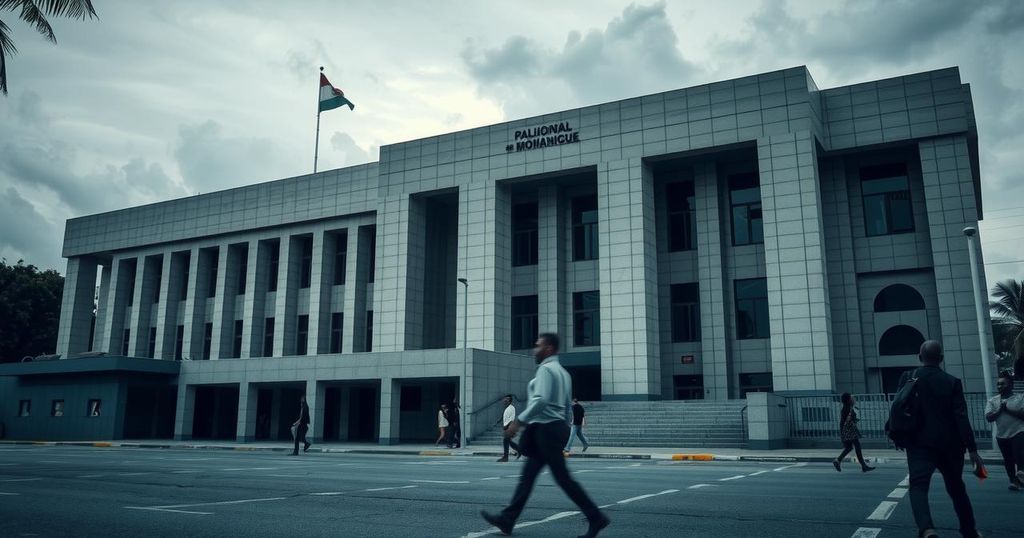On January 14, the new Mozambican Parliament was inaugurated amidst opposition protests against the election results. President Daniel Chapo’s victory faced challenges from Venancio Mondlane of PODEMOS, who self-proclaimed as ‘President’ after a contested election. Ongoing tensions led to violence nationwide, prompting discussions about forming a national unity government to resolve the crisis.
In Maputo, on January 14, the newly elected Parliament of Mozambique was inaugurated. However, opposition parties contested the electoral outcomes and boycotted the inaugural session, creating a tense atmosphere ahead of President Daniel Chapo’s inauguration. Chapo, the candidate from FRELIMO, was declared the winner on December 23 by the Constitutional Council, despite objections from the second-place candidate, Venancio Mondlane of PODEMOS.
The Constitutional Council’s rejection of Mondlane’s objection acknowledged some discrepancies in vote counting that were deemed not to invalidate the election results. It did, however, award PODEMOS additional parliamentary seats and adjusted Mondlane’s vote percentage from 20% to 25%, reducing Chapo’s from 70% to 65%.
Responding to these developments, Mondlane proclaimed himself “President” following his return from exile after allegedly escaping an assassination attempt in South Africa. Tensions escalated nationwide, with violent protests resulting in over 300 fatalities and thousands injured, according to numerous NGOs. Mondlane expressed his willingness to sacrifice for his cause, drawing strength from his strong evangelical beliefs.
To alleviate the crisis, discussions are ongoing regarding the possibility of establishing a national unity government, which would see Mondlane appointed as prime minister.
The political landscape in Mozambique remains fraught with tension as the opposition contests electoral outcomes, resulting in a significant national crisis. The inauguration of President Daniel Chapo and the self-proclamation of Venancio Mondlane as ‘President’ portray a divided political arena, sparking violent protests and substantial loss of life. The consideration of a national unity government indicates an urgent need for resolution in this delicate socio-political context.
Original Source: fides.org






